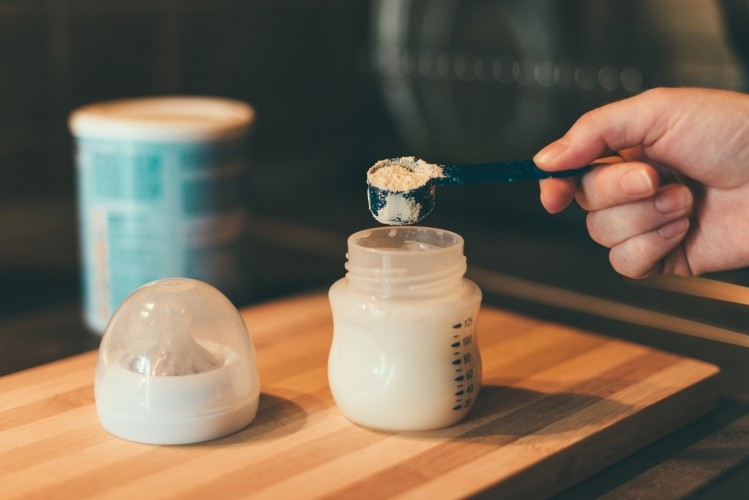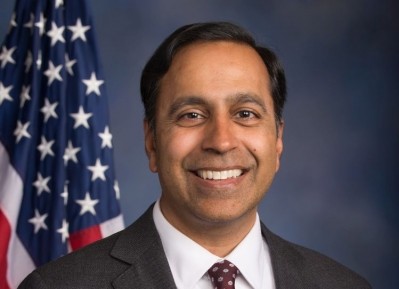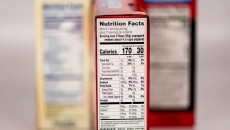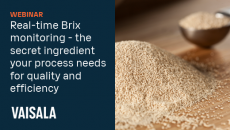Baby Food Safety Act proposes maximum levels for heavy metals in baby food, but are they feasible?

So, how were they determined and how challenging will it be for firms to comply given the ubiquity of these substances in the water and soil?
Under the Baby Food Safety Act of 2021, within a year of the Act coming into effect, manufacturers of infant formula and baby foods for kids up to 36 months would be required to adhere to maximum levels of:
- Inorganic arsenic (10 ppb, 15 ppb for cereal)
- lead (5 ppb, 10 ppb for cereal)
- cadmium (5 ppb, 10 ppb for cereal)
- mercury (2 ppb)
To place these numbers in context, the recent report (from the House of Representatives' Subcommitte on Economic and Consumer Policy) claimed that Nurture Inc (HappyBABY) set internal thresholds of 115ppb for infant rice cereal; that Hain (Earth’s Best Organic) set an internal standard of 200 ppb for arsenic, lead, and cadmium in some of its ingredients; and that Beech-Nut set internal arsenic and cadmium standards “at 3,000 ppb in additives, such as vitamin mix, and 5,000 ppb lead for certain ingredients like BAN 800.”
The FDA hasn’t yet set action levels in baby food for most of these metals – although it has been working on this - but its 2020 guidance on inorganic arsenic in infant rice cereal set action levels at 100ppb – well above the level proposed in the Baby Food Safety Act for infant cereals. It has also set a 50ppb limit on lead in juice, 100ppb for lead in candy, and proposed a 10ppb limit on inorganic arsenic in apple juice.
Arguing that the FDA’s 100ppb standard for inorganic arsenic in infant rice cereal “reflects manufacturers’ ease of compliance, rather than babies’ safety,” the authors of the Subcommittee report observed that, “If it is not possible, or it is exceedingly costly, to source ingredients like rice that achieve a safe level, then baby food manufacturers should find substitutes for those ingredients.
“Our nation’s children should not bear lifelong health burdens because of a manufacturer’s preference for tainted ingredients,” the report argues.
Clean Label Project: Thresholds are challenging but feasible
But are the levels proposed in the Baby Food Safety Act feasible for manufacturers to achieve over a 12-month time period?
Jackie Bowen, executive director at nonprofit The Clean Label Project, which tests foods for everything from pesticide residues to acrylamide, told FoodNavigator-USA that short term implementation of these standards "may be tough for some brands that may already have established supply chains and formulations."
But she added: "Clean Label Project published its peer-reviewed academic study on the levels of lead and cadmium in America’s best-selling infant formulas and baby foods in 2019. Based on our study, approximately 70% of best-selling infant formulas are able to meet the House Subcommittee’s proposed lead and cadmium thresholds.
"It’s also important to note that since 70% of formulas can meet those levels, it means that a clean supply chain already exists to help the rest of those products meet the new regulatory tolerances."
'An overhaul of supplier assurance programs and product specifications'
Put another way, she said, when the Clean Label Project tested baby food products for lead, 40% had some level of the heavy metal, but 60% were non-detect even at trace levels. So if more than half of the industry can achieve a non-detect level for a given contaminant, we know it’s possible for everyone else, whether that means using some different ingredients or sourcing ingredients from different suppliers or regions.
"While some levels of heavy metals are naturally present in the earth’s crust," said Bowen, "there are significant regional variations in soil quality as well as certain agricultural commodities that are inherently higher risk for heavy metals.
"Compliance with the Baby Food Safety Act of 2021 will be about baby food brands establishing a regional and ingredient-based risk analysis, proactively screening incoming raw materials for heavy metals, and where necessary, reformulating. The dozen Clean Label Project Purity Award winning baby food and infant formula brands are a testament that this can be achieved through an overhaul of supplier assurance programs and product specifications."
'Ensuring suppliers both domestically and abroad are knowledgeable and can achieve these tolerances will be key'
There are a few areas Bowen is anxious to hear more detail about.
The first is how to better support farmers - which is referenced in the Baby Food Safety Act (which allocates $50m for research into agricultural methods of minimizing levels of toxic heavy metals in crops). "Clean ingredients come from clean soil. Additional efforts are needed to assist farmers, remediate agricultural soils, and implement policy to ensure that human factors such as mining, fracking, smelting, and industrial agriculture don’t continue to exacerbate the problem," she said.
Given the globalization of the food supply, she added, "ensuring suppliers both domestically and abroad are knowledgeable and can achieve these tolerances will be key."
While the draft language provides maximum tolerances levels, "more details are still needed to ensure testing best practices- such as ISO 17025 laboratory accreditation and publicly available methodologies," she said.
Finally, she noted, this bill specifically targets baby food and infant formulas, but what about other vulnerable populations? "There are additional populations in need of protection including pregnant women and unborn babies in the form of prenatal vitamin and dietary supplement reform and other consumer products targeting this sensitive population."
The Baby Food Safety Act of 2021 – introduced in the House on March 25 by Rep. Raja Krishnamoorthi and Congressman Tony Cárdenas (CA-29), and the Senate on March 26 by Sen Amy Klobuchar (D-MN) and Sen Tammy Duckworth (D-IL), would require manufacturers of infant formula and baby foods for kids up to 36 months to:
- Set maximum levels of inorganic arsenic (10 ppb, 15 ppb for cereal); lead (5 ppb, 10 ppb for cereal); cadmium (5 ppb, 10 ppb for cereal); and mercury (2 ppb).
- Lower levels further within two years through FDA guidance, and again after three years through regulation
- Test their final products – not just ingredients – for toxic heavy metals.
- Post the results of their product testing online twice per year.
- Establish a public awareness campaign through the CDC to highlight the risks posed by toxic heavy metals in baby food.
- Authorize $50m for research on agricultural methods of reducing toxic heavy metals in crops.
FDA: We’ll soon be putting a plan into action
Asked if the action levels proposed in the Baby Food Safety Act were developed in consultation with the FDA, a spokesperson at the agency told FoodNavigator-USA: “While the FDA does not comment on proposed or pending legislation, we look forward to continuing to work with stakeholders and Congress on this important topic.
“As previously announced, the FDA is working to take new actions aimed at further preventing or reducing chemical hazards that may be present in foods for babies and young children. Specifically, we’ll soon be putting into action a plan aimed at reducing toxic elements in these foods to levels as low as is reasonably achievable.”
Gerber: 'Heavy metals are naturally found in water and soil'
So how have companies named in the Feb 4 Subcommittee report - who have been hit with a torrent of lawsuits since the report came out – responded to the proposed legislation?
At Gerber - which along with several of the companies criticized in the Subcommittee report is a member of the Baby Food Council, a group set up in 2019 to tackle heavy metals in baby food - a spokesperson told us it was “reviewing the proposed legislation" and welcomed the opportunity to collaborate with lawmakers and the FDA.
But the spokesperson added: “Heavy metals are naturally found in water and soil and can become a part of certain fruits, vegetables and grains as they grow. This is true whether a parent buys them in the grocery store or at their local farmer’s market. Gerber takes many steps to reduce the levels of heavy metals in our foods including rotating crops according to best available science, and testing produce, water, ingredients and our foods throughout the process to ensure we are delivering on our promise to deliver high-quality and safe baby food.”
Walmart said it was “reviewing the legislation” and looked forward to “working with Congress and the FDA on establishing appropriate standards for infant and baby foods.”
Beech-Nut Nutrition told us: "We look forward to reviewing all legislative proposals governing our industry, and continuing to work with the FDA, in partnership with the Baby Food Council, on science-based standards that food suppliers can implement across our industry."
“For too long, industry has been allowed to self-regulate baby food safety, and the results have been appalling and extremely harmful to our kids. We will not stand for that any longer.”
Rep Raja Krishnamoorthi, chairman, House Subcommittee on Economic and Consumer Policy
“Right now, it’s the food companies, not the FDA, who decide whether our food is safe. That’s ridiculous. No wonder Congressional investigators found high levels of toxic metals in baby food. Thanks to the Baby Food Safety Act, food companies will finally have to meet tough standards that will protect our families.”
Scott Faber, SVP Government Affairs, Environmental Working Group
“The Baby Food Safety Act … effectively treats heavy metals in the same manner as pathogens – an apt comparison as the only ‘safe’ level of either in food is zero. While the FDA recently announced new steps to reduce heavy metals in food, the agency fell short. Families need the FDA to be held accountable.”
Tom Neltner, chemicals policy director, Environmental Defense Fund


















